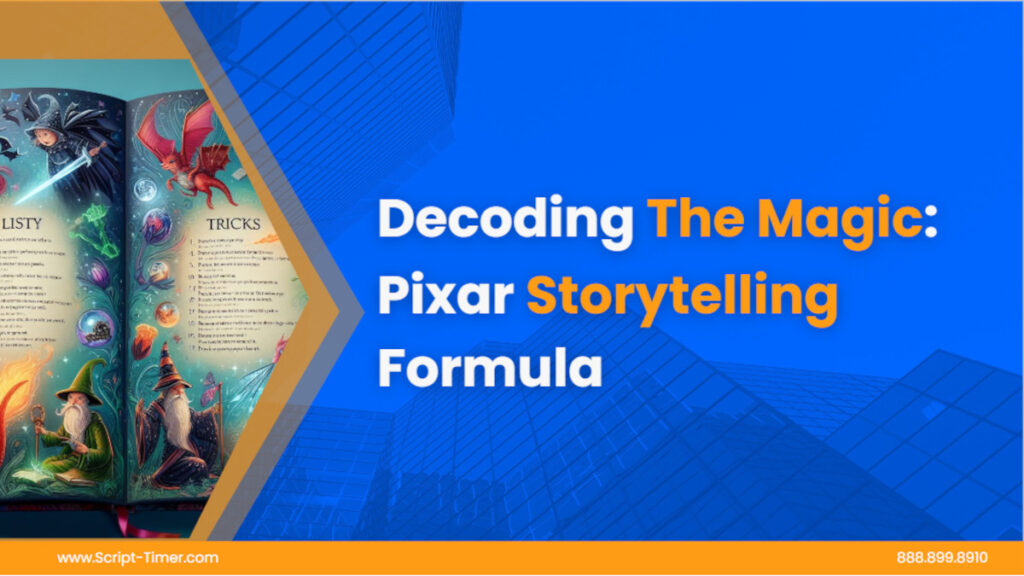Some people get confused by thinking script writing and screenwriting are the same thing, but in reality, they have many differences, for example if you have ever been captivated by a movie, a play, or even a video game, and thought “I want to create something like that”, you might be drawn to the world of script writing, but within this realm we can find a specific discipline called screenwriting that deserves its own spotlight.
While these terms are often used interchangeably, there are many important differences between script writing and screenwriting that we need to understand. So, in this article we’ll delve into these fascinating worlds and explore what it’s needed to bring engaging stories to life.
Script Writing: The Broader Canvas
Script writing covers a wider range of different projects, and it can be written for:
- Television: This includes everything we see on TV like sitcoms, dramas, broadcasts, documentaries, etc. All of these examples are structured by a well-written script.
- Radio: Radio shows are also guided by scripts that ensure an engaging experience for listeners, scripts are used in talk shows, dramas, and comedies.
- Theater: All stage plays rely on scripts that structure the whole story of the play, scripts also outline dialogue, character actions, and scene descriptions.
- Video Games: Stories in video games are also guided by scripts made by storytelling professionals, and these scripts cover storylines, character dialogue, and the in-game narration.
- Corporate Videos: Scripts are also used to create engaging presentations, training materials, and marketing videos ensuring a smooth and entertaining video.
As seen in these examples, the primary focus of a script is to create the dialogue and character actions because it provides a blueprint for the actors or presenters to follow and ensure a well-defined structure. Stage directions are sometimes included but they’re minimal if we compare them to screenplays.
Screenwriting: Painting With Pixels
Screenwriting is a specific type of script writing that’s focused on the visual medium, and it’s all about creating stories for the big and small screens like movies, television, and shows. Let’s see what sets screenwriting apart:
- Visual Storytelling: Screenplays are much more than just dialogue because they use vivid descriptions to define a setting, character actions, camera angles, and even the sound effects.
- Formatted For Production: When writing a screenplay, you need to follow a specific format that conveys information to all aspects of the progres of creating a film, and not just include the actors. So, you need to include scene headings, character introductions, descriptions of what’s happening, and a dialogue formatted in a particular way.
- Focus On The Visual: When writing a screenplay you need to consider how the story will look once it is translated to visuals and sound. So you need to consider the effective use of camera shots, special effects, and sound designs.
Becoming a Screenwriter or Script Writer
To become a screenwriter or script writer you need a deep understanding and passion for storytelling and a strong understanding of character development, plot structure, and dialogue, so let’s see some tips to get you started:
- Read Scripts and Screenplays: You need to really immerse yourself in the format and style when you’re reading scripts, and then analyze how the best writers structure their stories and use language.
- Take classes or workshops: Many institutions offer classes about script writing and screenwriting, or you can find online storytelling classes, to learn how to properly structure your stories and scripts.
- Keep Practicing: Remember that the key to developing any skill is to practice all the time, you can start by writing short scripts, experiment with different genres, and try to get feedback from others to have a different viewpoint of your work.
- Network and Build Relationships: There are many platforms where you can connect with other writers, industry professionals, and production companies, this is really helpful to improve because by surrounding yourself with the writing culture you will learn new techniques.
Tools To Trade
There are many tools that can help you format your scripts and screenplays according to industry standards, you can try these popular options
- Celtx
- Script-Timer
- Final Draft
- Writer Duet
- Fade In
These programs offer different tools for script writers and screenwriters, the key is to experiment with different options to ensure you find the toll that perfectly aligns with your needs and expectations.
The Script Writing and Screenwriting Journey
The path for script writers and screenwriters is challenging and you need to be always learning and improving because it requires dedication, resilience, and dedication to be constant in your learning journey. And for those who stay constant and have a passion for weaving tales, the rewards are great, so let’s review some career paths:
- Staff Writer: Television shows always need staff writers that can contribute in different episodes, ensuring a well-crafted story.
- Freelance Script Writer: You can get many projects on a contract basis, and often many writers follow this path for its potential to get them more work.
- Screenwriter: You can also sell your original scripts or adapt them to studios or television, they often sell for big amounts of money.
- Game Writer: Another good option is dedicating your skills to create compelling narratives and dialogues for video games.
Now that you better understand the key differences between script writing and screenwriting, it will be much easier to choose a path to follow, just remember to use all the tools at your disposition to speed up your learning process, if you want to unlock all the writing tools you need in the same place, just sign up to Script-Timer for free now!



